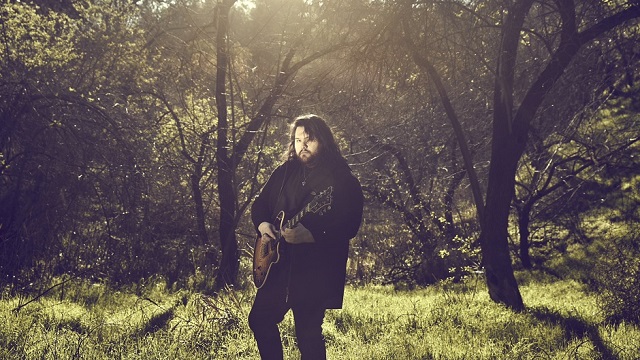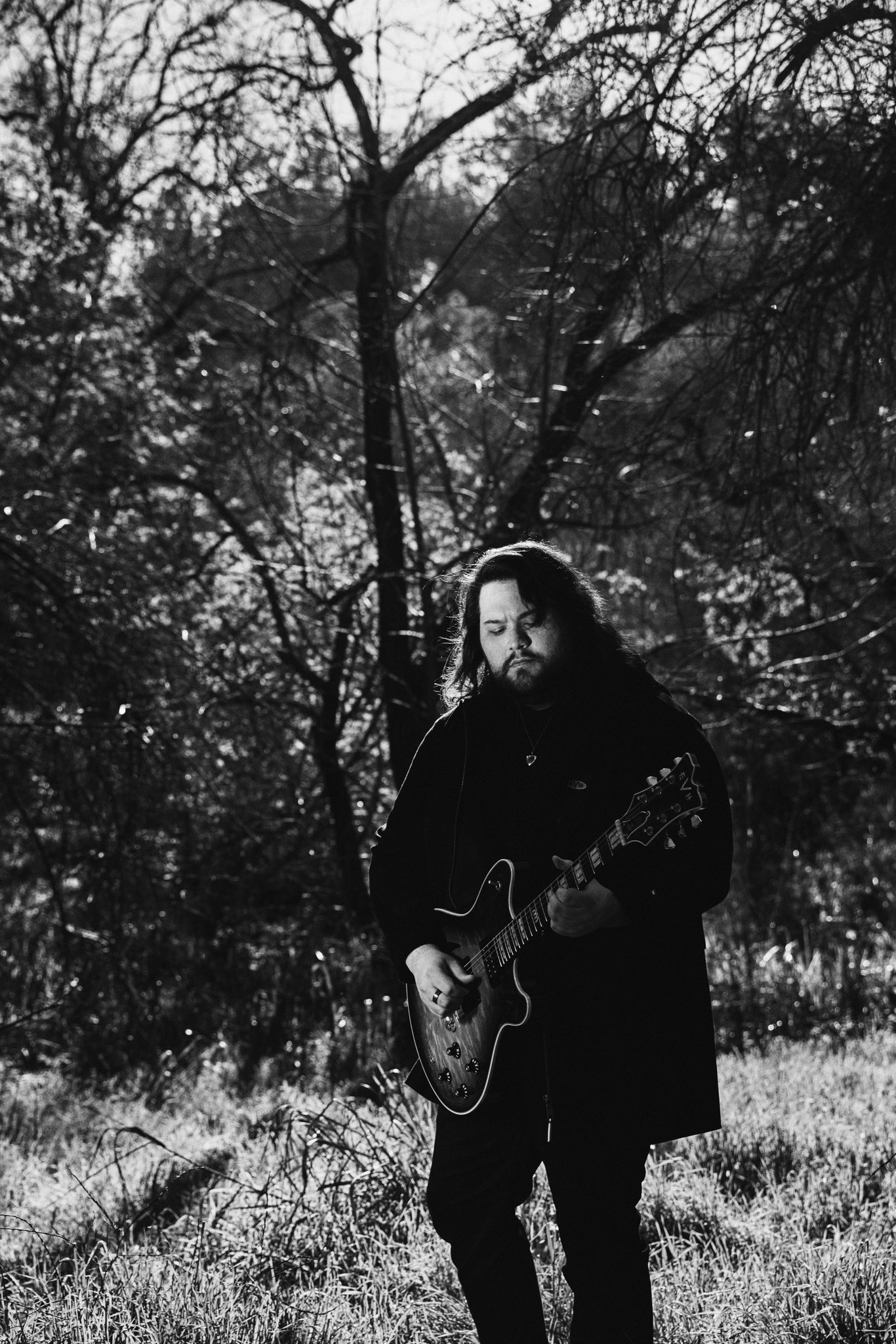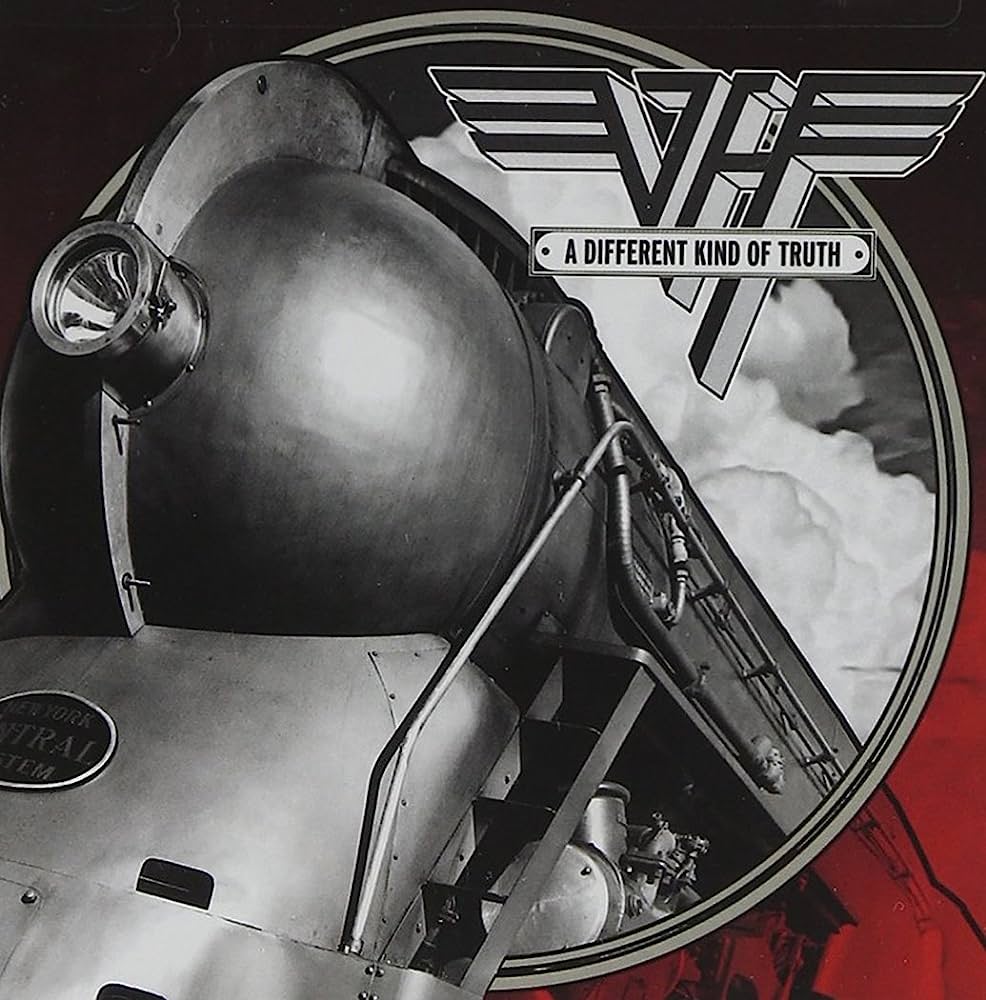WOLFGANG VAN HALEN – “Being In The Same Space As Professionals Doing Things”
August 20, 2023, a year ago

It’s funny, as I write this, Wolfgang Van Halen is probably caught in that 3:00 rock ‘n’ roller’s twilight zone, charging the batteries to go on stage with his muscle car of a five-piece Mammoth band—three guitars!—as support to Alter Bridge.
What’s interesting about that is that Alter Bridge is Mark Tremonti’s band and Wolfgang was part of the post-Creed, post-Alter Bridge band actually called Tremonti. Also interesting is that the Mammoth sound is very much in the wheelhouse of both those bands, as well as Sevendust (Wolfgang has collaborated with Clint Lowery), along with Soundgarden, Audioslave, Stone Temple Pilots, Tool (see “Optimist”) and Slash featuring Myles Kennedy & the Conspirators.
In other words, what’s fascinating about the Mammoth sound—Mammoth II just dropped, following 2021’s Mammoth WVH debut—is that it’s really informed by the kind of heavy metal that was all the rage in 2005 to 2010, when Wolfgang, now 32, would have been in his late teens. Basically, he’s got an unexpected palette, and it’s got nothing to do with Van Halen or indeed today’s nutty progressive deathcore heavy metal, to pick a spot where you might have expected him to land. What’s all the more impressive is that Wolfgang lives up to both his first name and last, demonstrating some kinda musical genius, to put it bluntly, by playing all the guitars, bass and drums on the album, writing everything, music and lyrics, and then singing it like his one job is front man with nothing more than a microphone.
“It’s what I do, I think, more than anything,” begins the soft-spoken polymath. “It’s just nice to have another foot down with this project to prove that the first one wasn’t this kind of one-off thing and that this is what I do.”
As for a self-assessment of his sound, he figures, “I think other than my main influences for the project, things like Foo Fighters or Nine Inch Nails, I think my heavier influences came through in a lot of the areas on this album, like Tool or Meshuggah, but through my own sort of lens. I think the tone of the song can definitely inform the melody, which then in turn can inform the lyrical content, for sure. I think when it comes to the way that I like to make music, it’s that it can be heavy, but it can also be melodic. And they can coexist without overwriting each other.”

Which I guess sums it up—Mammoth II is full of sort of majestic, clouds-parting melodic metal, buttressed by huge grooves and surprising little progressive arrangements when it comes time for a bar-ending fill or a break section. And then there’s Wolfgang’s lyrics, which are appropriately emotional and soul-bearing.
“It’s certainly more social than anything,” says Wolfgang, summarizing his lyrical eco-system. “It all comes from personal experience and sort of reflection or almost therapy to a certain extent, just kind of getting things out that I couldn’t otherwise. I think most of the time when I write, it’s kind of at this amalgamation of people that have done me wrong, sort of this entity of people just joined into one that I kind of write at. But yeah, I think in this one, it was way more introspective and darker. It’s much more of an inward album, as opposed to the first one.”
Unfortunately, Wolfgang’s got a bit of a reputation for getting snarled in social media arguments. Are we looking at some sort of theme here, where we’ve got an album about what it’s like to be famous in the internet age?
“Yeah, you can certainly assume that for a bunch, I think,” muses Van Halen. “And I think people are maybe a bit too quick to do that when it comes to my stuff? Because I think there’s only maybe two direct… one really direct song on this album that you could connect to that, which would be ‘I’m Alright.’ I think ‘I’m Alright’ is probably the only really direct response to any personal views of people trying to tell me what they think I should be doing; it’s sort of a response to that. I think the song ‘Better Than You’ is more of a commentary on just where we are as a whole. But when it comes to a personal thing, ‘I’m Alright’ is certainly that one, I guess.”
Asked what would have constituted being a challenge here, or what scares him the most in building a record, Van Halen figures, “Probably guitar and vocals; those are the two things that I’m maybe not as comfortable with, in comparison to something like drums that I’ve been playing way longer. But on this album, I was a bit more comfortable compared to the first one. I think I came into it with more confidence and was able to not doubt myself as much and go forward a bit more.” As for guitar influences, Wolfgang offers that, “Other than dad, there’s this guitar player named Aaron Marshall for a band called Intervals who is probably one of my main favorite guitar players out there now.”
“It was one of the first ideas that made me really excited to get into studio for the second album,” reflects Wolfgang, on the super-energetic and up-tempo “Another Celebration At The End Of The World,” which was collared to be the first single from the record. “It had a vibe that I didn’t think was on the first one. It was very, very fast and aggressive and almost punky, even thrashy in a way. That side of the sound hadn’t really been looked at on the first album. So yeah, after getting the record done, it just had that vibe, it had the chorus, it had the solo, it just seemed like the right thing to be the first taste for everybody to hear.”
As for the song’s pop-punk sense of melody, Van Halen says, “I was into Blink-182 when I was a kid. Travis Barker was one of my early favorite drum influences. I tried to recreate everything I heard on Enema of the State. So there’s that sort of punky fusion to my playing. Also I loved how they did harmonies. I got really into harmonies, because I loved the way that the two separate singers there would harmonize all the time.”

And it goes without saying that Wolfgang also had Van Halen to learn from.
“Sure, yeah. I think having the benefit of going through that and having seen how an operation of that size operates, for lack of a better word, that really makes you reflect. And growing this whole thing from the beginning, you make a lot of specific decisions to make sure certain things that you see happen and not happen with you. You learn what you want to do and what not to do. To be able to have that from the beginning is really cool. I mean, being in Van Halen, it was just kind of being there and watching. You know, my dad is the one who taught me how to play drums when I was nine. But other than that, just by being in that environment and watching and learning and listening and just paying attention, I think that benefited me a lot, just being in the same space as professionals doing things.”
“They’re standing on the shoulders of giants,” shrugs Wolfgang, when asked about how insanely talented young musicians seem to be these days, with virtuosity sort of being expected. I mean, I’m somewhat referring to what Wolfgang’s accomplished, but he’s almost old compared to the new paradigm. “You know, as people get better over time, people get better because people are better, you know? (laughs). It’s like, you have young people able to look up anything on YouTube as opposed to back in the day having to struggle listening to a radio to figure it out and hope that song comes up again to try and learn it. You have everything at your fingertips, to be able to learn and figure stuff out. Take hockey, for example. It’s like when Gretzky came about, he was such an anomaly. But now there are people who are just like trained on Gretzky from the beginning and they’re insanely fast and can play at his level and speed when they’re eight. But you’re right. It’s a crazy thing to see somebody who is that level of anomaly, and after 20 years or so that becomes the norm. But we wouldn’t be where we are without them. So that’s where that respect is deserved, regardless if players may have surpassed them in skill. But even then, that’s a subjective opinion.”
“I don’t want to sound like a dick,” laughs Wolfgang, about to tell me he doesn’t get stopped when it comes to musician hurdles. “But like, it’s not that insane yet, where I get completely blocked. I mean, I think my least practiced things are guitar soloing or lyric writing. That’s where maybe I take the time to focus more, because I know it’s something that isn’t my immediate best thing that I’m strong and confident in. But other than taking more time to do things that I’m not confident in, I wouldn’t release this if I wasn’t confident and comfortable and happy and proud of it. The guitar solo on ‘Take A Bow’ was a big step forward for me. To really let a guitar solo breathe and take its space rather than being, you know, this sort of quick thing after the second chorus was a big step for me. I think that was it, really. It wasn’t difficult, but it was fun, in a complicated way, to kind of crack that. So I haven’t reached—unfortunately or fortunately—that point yet. I think if you give me a couple times… I mean, I’m kind of a perfectionist, so if I don’t get it the first time, I’ll run it until I do (laughs).”
Asked why he made the eyebrow-raising decision to build the Mammoth band into a juggernaut featuring drums, bass and, including himself, three guitar players, Wolfie says, “Because I can’t have four (laughs). I think there’s so many layers and vocals, that having all these people there, you’re able to get a full live experience of what the record is, without having to cheapen out and use tracks. It’s important for me to have it be an authentic live experience. And to not have any… I don’t want to get into the whole thing about tracks again. Last time I talked about this, it was spun for months. But you know, it’s just important for me and for us to be able to play everything on the album, rather than having chunks or portions of main instrumentation, or vocals, playing through as tracks.”
“I’m really proud of what I was able to do on that album,” figures Wolfgang, asked about his role on the final Van Halen album, A Different Kind Of Truth, from 2012. “I mean, gosh, I was 19, 20, when I started working on that. It was really fun to experience that other side of being in a band, because at that point I’d only been playing live. And that’s why it was me who pushed so hard to get in the studio, because I thought it would be a really fun thing to do. I thought, that’s what you do when you’re not on tour if you’re in a band. So I did my best to round up the guys. Yeah, I’m really proud of what I was able to do on that album.”

“No, not at all—no,” says Wolfgang, emphatically on the thought of going back into the Van Halen archive, the vaults, and listening to all those tapes and constructing some sort of follow-up to A Different Kind Of Truth. “I think what was released is what was released. And even in my dad’s own words, when he talked about it, he’s like, ‘I released all the good stuff.’ The stuff that’s there is the stuff that fell by the wayside, which, sure, people would probably find worth in it. But without dad here, it feels unfair to make that assumption that anything should be… like that’s a decision that can’t be taken lightly. And I think that’s up to Al at this point? If it ever came down to me, yeah, that would be a tough decision to make. Because in dad’s own words, you know, he released what he thought was worthy. I really don’t appreciate when you see certain artists pass and you see their families go through and just kind of release everything. It’s like, that’s not right, to me.”
Asked if there’s a grey area there, i.e. things they didn’t get around to finishing during the building of A Different Kind Of Truth, he says, “Yeah, but that was what that process was. I don’t think there was much left over that we hadn’t taken a look at and/or attempted or put away. That’s pretty much the best of that process.”
And so it’s onto Mammoth, now a two-record band, and working out what his personality naturally is through this vehicle. Part of that process comes from Wolfgang’s modus operandi when it comes to lyrics. “Yes, I have note books that I just kind of keep phrases or things like that in. But really, the melody and the song are what informs the lyrics most for me. I don’t think I could really shove lyrical ideas into a song where they won’t fit. But yeah, sometimes it’s tough. I certainly have to go to a certain place, depending on the song, to be able to pull some lyrics out of me that really aren’t easy. Because I really need to dig through the parts in my brain that I don’t feel like acknowledging a lot of. That can be the toughest part of the process.”











